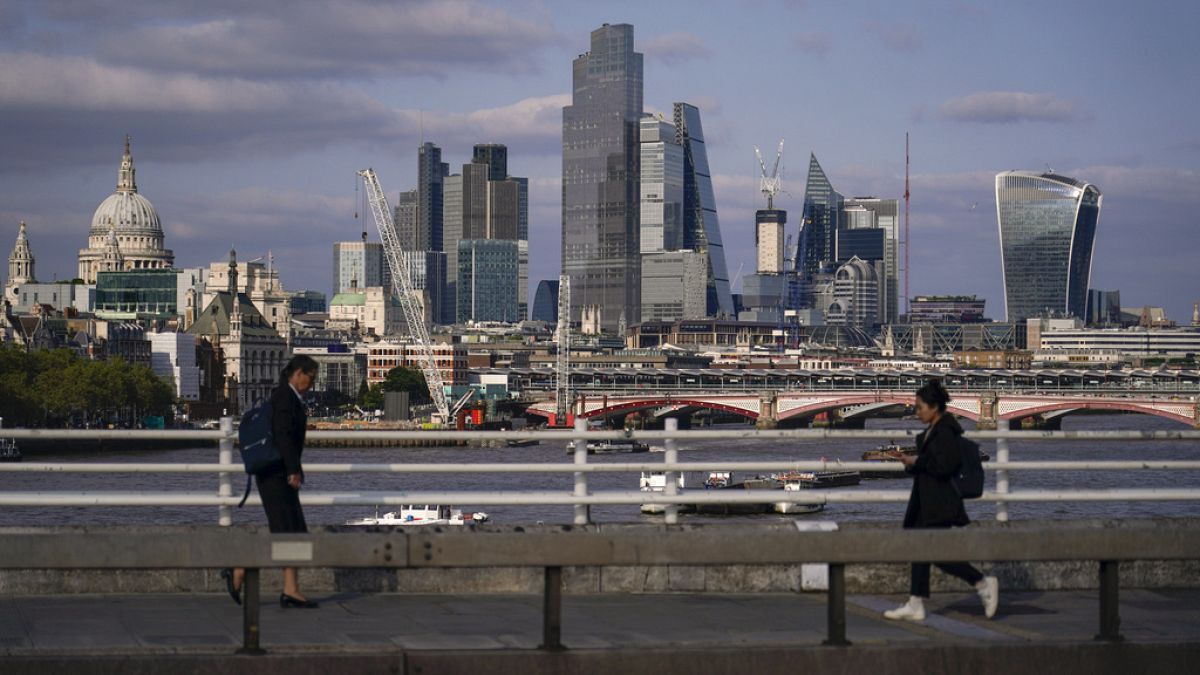The Lord Mayor of the City of London, Michael Mainelli, who acts as an ambassador for the city’s financial district, says the Square Mile has lost thousands of jobs because of Brexit.
The Lord Mayor of London’s economically influential financial district has called the UK’s decision to leave the European Union a ‘disaster’ that has led to the loss of tens of thousands of jobs.
Professor Michael Mainelli, who represents the Square Mile, one of the world’s leading financial centres that includes the Bank of England, Lloyd’s of London, international banks, law firms, and insurance companies, said the Brexit decision had cost the City approximately 40,000 jobs.
Speaking to Reuters, Mainelli, the 695th Lord Mayor,** laid bare the seismic impact of the UK’s decision to break away from one of the world’s most powerful trading blocs.
“We had 525,000 workers in 2016, my estimate is that we lost just short of 40,000. There are now about 615,000 jobs in the City, buoyed by the expansion of the insurance and data industries,” Mainelli said.
He added that the Square Mile had generally been pro-EU in the Brexit debate eight years ago, saying: “The City voted 70-30 to remain. We did not want it.”
His comments will reignite the debate about the true impact Brexit has had on Britain’s money-spinning financial services sector.
Doubts exist about the benefits of Brexit
Analysis by the UK’s Office for Budget Responsibility (OBR) – the independent body providing forecasts of the country’s economy and public finances – reported in May 2024 that Brexit will reduce the UK’s long-term productivity by 4%, compared to remaining in the EU.
The body found that both imports and exports will be around 15% lower in the long run, and that much-vaunted new trade deals with non-EU countries will not have a material impact, and that any minimal impact will be gradual.
The OBR report says: “This is because the deals concluded to date either replicate (or ‘roll over’) deals that the UK already benefited from as an EU member state, or do not have a material impact on our forecast.”
Post-Brexit trade deal challenged
OBR analysts cite the example of the UK-Japan ‘Comprehensive Economic Partnership Agreement’, as largely mirroring the agreement Japan signed with the EU in 2019.
The UK Government’s economic impact assessment suggested that the deal will increase the UK’s GDP by 0.1 per cent over the next 15 years. However, the OBR found that the estimate was relative to not having a trade deal with Japan, whereas the UK would have been part of the EU-Japan agreement had it not left the EU.
A free trade agreement struck by the UK government with Australia, the first to be concluded with a country that does not have a similar arrangement with the EU, is facing a legal challenge by UK environment and food campaign groups.
The deal, which the government estimates will raise the UK’s GDP by 0.1 per cent over 15 years, is to be subject to a judicial review over concerns that it could enable Australian beef, lamb, mutton and dairy producers to undercut British farmers on animal welfare and environmental standards.
The UK’s new Labour Government has promised a reset of the country’s relationship with the EU, but no concrete details have been released about the shape of any new post-Brexit arrangement.

